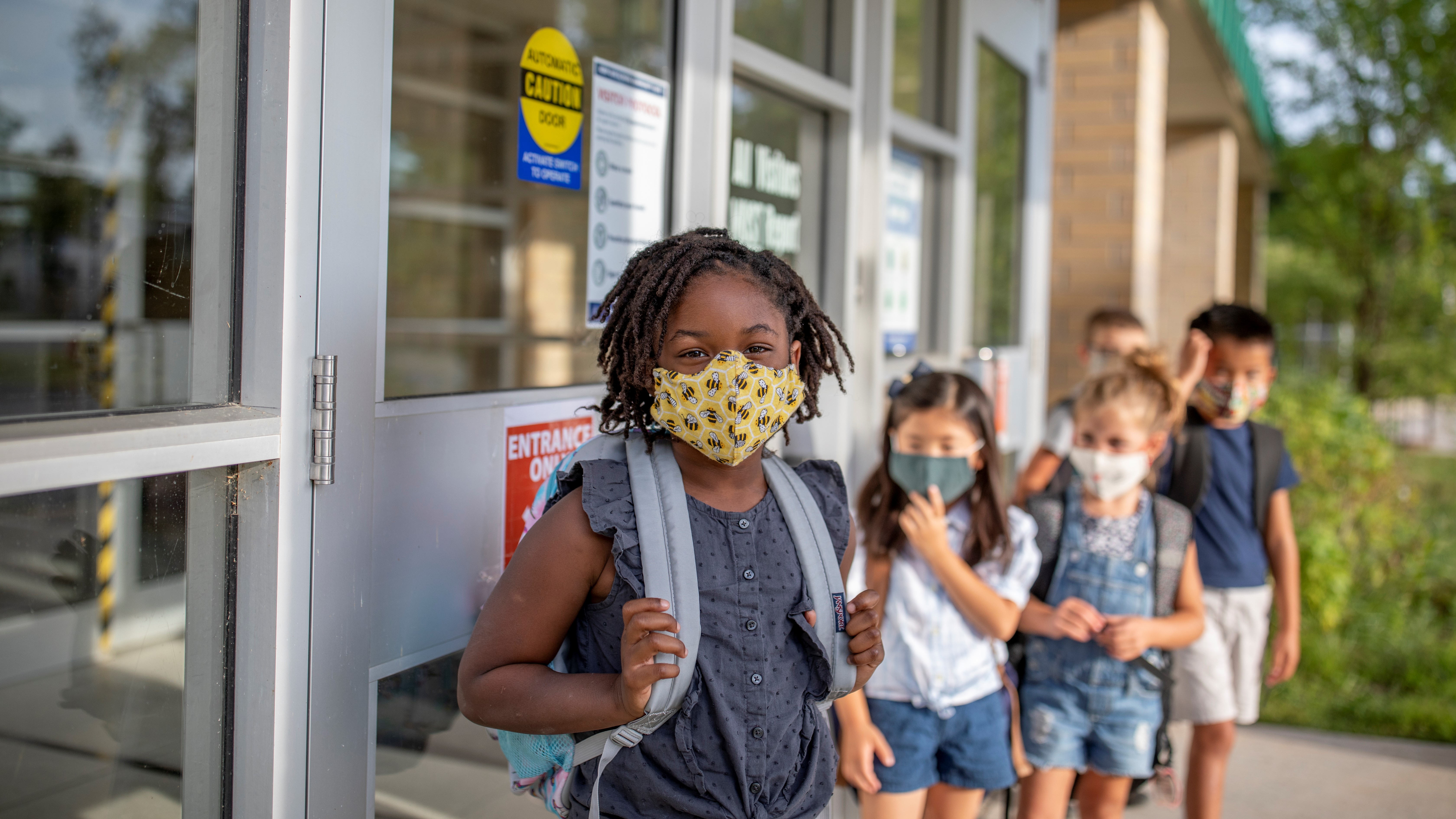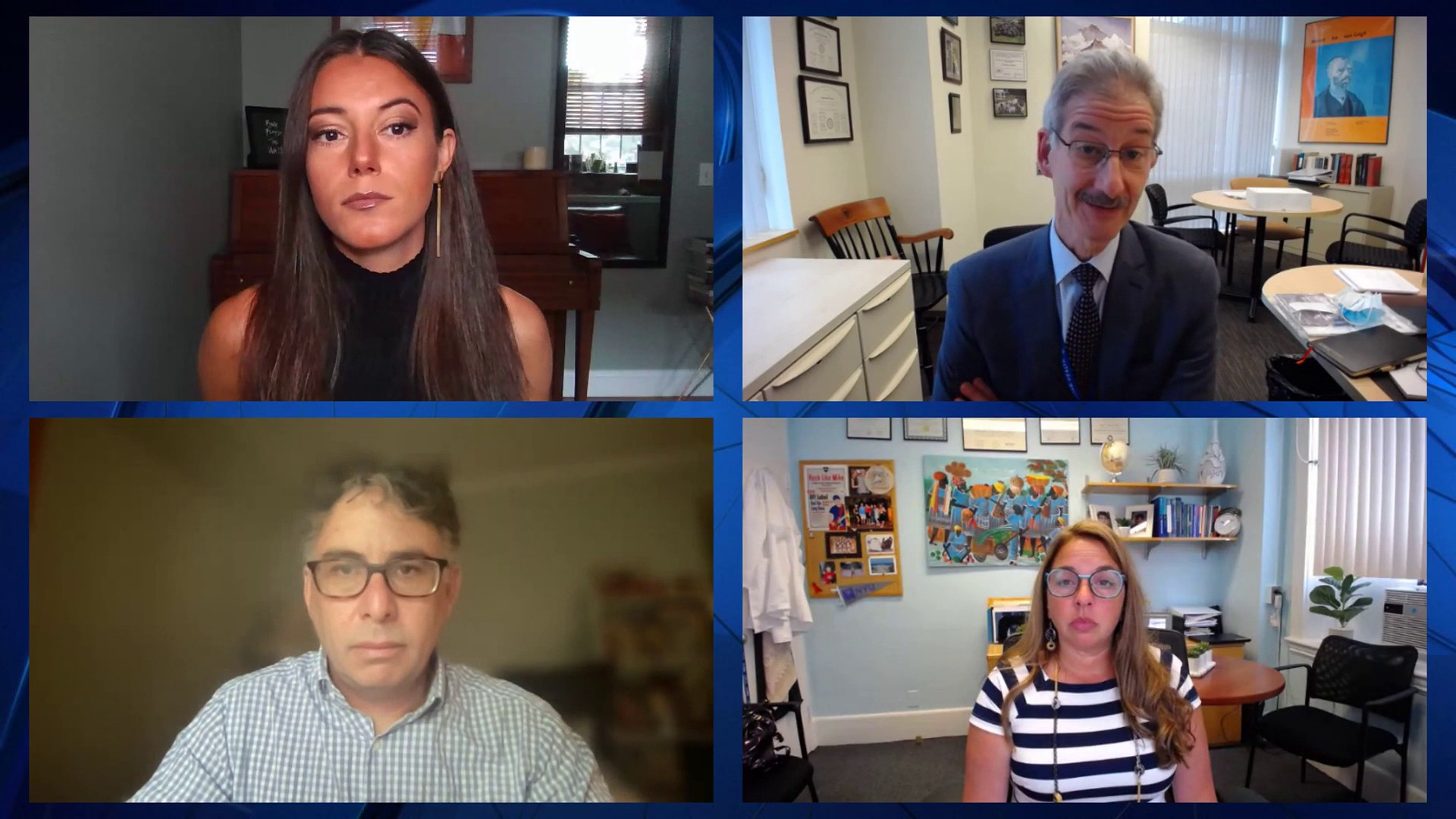A new study that found masks cut the spread of COVID-19 in Boston-area schools is providing new data for the pandemic-long debate about school mask mandates.
The study, published last week in The New England Journal of Medicine, examines what happened when school districts in Boston and Chelsea kept their mask mandates for 15 weeks after Massachusetts dropped the requirement this February. The researchers determined that those cities avoided about 45 COVID cases for every 1,000 students and staff members, based on the COVID rates of the other 70 school districts in the Greater Boston area.
WATCH ANYTIME FOR FREE
Stream NBC10 Boston news for free, 24/7, wherever you are. |
While there is no debate among top Boston doctors about whether masks are effective at preventing the spread of COVID-19, experts in the field continue to disagree on whether masks should be required in schools.
During NBC10 Boston's weekly "COVID Q&A" series, Tufts Medical Center Hospital Epidemiologist Dr. Shira Doron argued that requiring masks can adversely impact families, while Brigham and Women's Hospital's Dr. Daniel Kuritzkes and Boston Medical Center's Dr. David Hamer countered that they could be used as a tool to prevent missing school.
Get updates on what's happening in Boston to your inbox. Sign up for our News Headlines newsletter.
The observational study was conducted by researchers at a slew of Boston institutions: the Harvard T.H. Chan School of Public Health, the Boston Public Health Commission, Boston University, Massachusetts General Hospital and Brigham and Women's Hospital.
"School districts could use these findings to develop equitable mitigation plans in anticipation of a potential winter Covid-19 wave during the 2022–2023 school year, as well as clear decision thresholds for removing masks as the wave abates," the researchers concluded.
When Massachusetts lifted the school mask mandate this February, as did most other states across the country, "It wasn't because anybody was saying masks don't work," Doron said. "It was because there are downsides and that the virus is here to stay."
The consensus among public health experts at the time, Doron recalled, was that they could either determine whether there was enough immunity in the population to remove the mandate or students could go on wearing masks indefinitely.
Ultimately, the cost of putting children through the challenges that come with masking do not outweigh the benefits of keeping case numbers low at this juncture, Doron said, referring to her experience as an advisor to state government, private and public schools and youth sports camps.
"To me, it's not a question of, you know, does this study prove that masks work? I believe masks work," Doron said. "But given everything I have seen, it would be hard for you to convince me that mandating masks in school again is the right thing to do."
Doron recalled parents, students, teachers and administrators telling her that masks affect socialization and language learning, particularly for people with speech impediments, hearing impairment and those who are neurodivergent. Doron, who has consistently opposed mask mandates in schools during regular appearances on the "COVID Q&A" series, added that students will inevitably miss some school due to respiratory viruses. In her mind, the focus should be on preventing severe hospitalization and death, not preventing positive PCR tests.
Both Hamer and Kuritzkes agreed with the notion that mask mandates can impact students' development. However, Hamer noted, losing more time in school -- or teachers to more sick days -- can also have a negative impact on students' development.
"I think this is a tricky balance," Hamer said, pointing to plunging student test scores during the pandemic. "I think school closures are really a bad thing. Opening schools and having masks, you know, if necessary, may not be such a bad thing. But closing them is really a problem."
Get updates on what's happening in Boston to your inbox. Sign up for our News Headlines newsletter.
Although a lot of young people tend to have mild cases of COVID-19, Hamer said, they are still forced to miss a certain number of school days if they test positive.
Kuritzkes questioned whether there is sufficient evidence to support that "even some substantial minority" of children are adversely affected by mask mandates.
"There's no question that the masks work. So this is no longer a medical scientific discussion. This is a political discussion," Kuritzkes said. "And it's about the needs and desires of different groups of people and whose desires and needs take precedence."
Some variables related to the study raised questions for Doron, including that students and staff were not actively screened for infection and that the state’s surveillance testing program was very different from school to school.
But Kuritzkes described the paper as an "incredibly strong study." The research shows that during the initial omicron wave, when Massachusetts saw a surge in cases, the rise in schools was "a blip."
"It was only after the masks were removed that you saw a substantial rise," Kuritzkes said. "This also took place at a time when very few school-aged children were vaccinated, certainly not younger children because that didn't become available until later in the season. And so the only prevailing immunity would have been immunity from prior COVID infection, which was also at that point not as prevalent in the younger population as it subsequently became."



